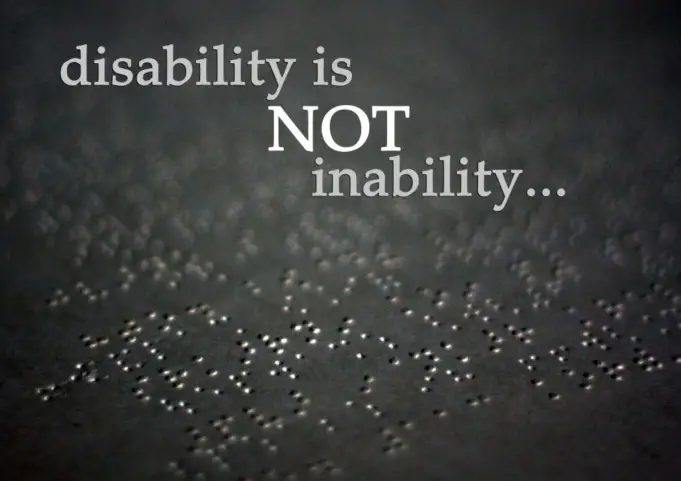Disability can be one of the most discouraging, frightening, and frustrating things in human life. The actual word is made up of the root “ability” and the prefix “dis,” which means “away.” As in, “ability–away.” But that doesn’t have to mean that if you have a disability, your abilities are irrelevant. Here are five reasons your disability doesn’t have to bring you down.
Your Disability is Natural
People with disabilities are speaking out about their civil rights. For example, increasing numbers of parents and teachers are pushing for more inclusive schools rather than using special education as a segregated location.
Businesses are making the effort to bring themselves up to accessibility standards, and advocacy groups throughout the U.S. lobby daily for realistic employment and fair wages for people with disabilities. Because of these and other changes, the U.S. is beginning to see disability for what it is–a natural state.
You are Protected Under Law
Today’s people often struggle with where to go when they need legal advice. Fortunately, disability is now an important issue in the legal field, and disability law continues to grow. Many states, such as New York and Colorado, are noted for their disability services.
You can find a disability lawyer in Vallejo, California, Buffalo, New York, or even small towns like Pacudah, Kentucky. Many attorneys are rated online and often have 3-5 star ratings.
You are Needed
Unfortunately, the stigma for disability is often, “That person can’t do anything.” And yes, some disabilities are quite limiting, whether physically or mentally. But with the right modifications, any person with a disability can develop and capitalize on his or her natural abilities and talents.
As it has been said, “If you can do one thing well, you are needed by someone.” The person who grows a garden in a group living setting is just as needed as a Wall Street CEO.
Technology is Growing
Centuries ago, if a child was born blind, it was assumed that he or she would never learn to read. If a child lost a limb or was born mute, it was assumed he or she would never complete simple, manual tasks or be able to communicate. Fortunately, technology has made all these things, and more, possible.
Those paralyzed can now use power wheelchairs, increasing their independence. People who were once tagged “non-verbal” can now rely on computers and other assistive tools to help them communicate. Google is even currently perfecting a driverless car for individuals who have not been able to drive before. The more the general population knows about disability, the more technology can grow.
People are Curious
As with any “difference,” some people will always be, and act, ignorant about disability. They will choose to stereotype you rather than get to know you. However, most people want to understand your story and will ask questions if you make yourself approachable. The more they know about what you need–and do not need–the more comfortable you will both feel.
Disability can be frustrating and frightening. But it doesn’t have to mean a life sentence of stereotyping and victimization. In fact, with knowledge like this, you can show others that disability is in fact an ingenious way to live.












